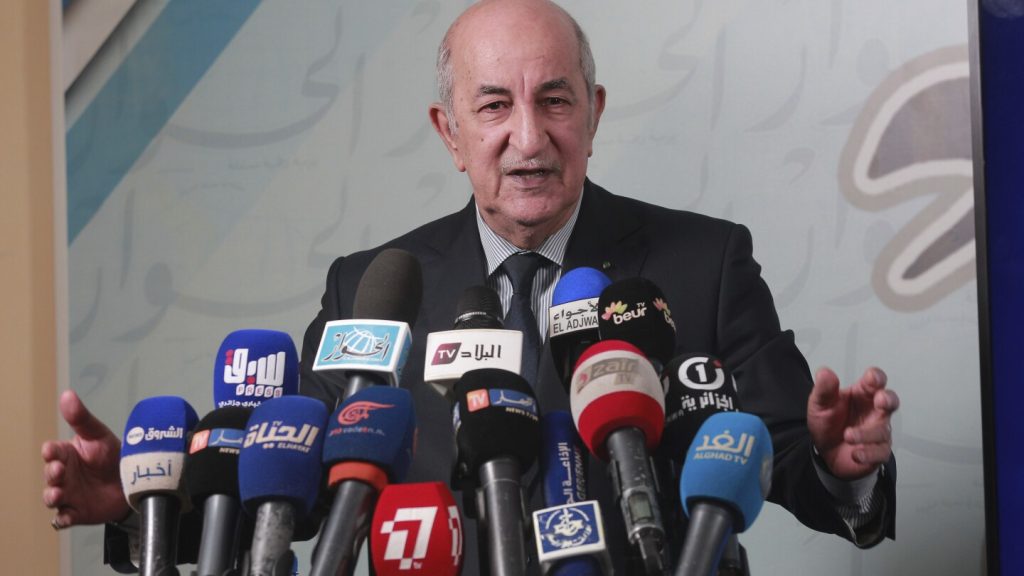Algeria has announced that its next election will be held on September 7, giving President Abdelmajid Tebboune more than five months to campaign for a potential second term. Tebboune has not yet officially announced his candidacy, but so far, only Zoubida Assoul of the Union for Change and Progress has come forward to challenge him. The decision to hold the election earlier than expected, as it was initially scheduled for December 2024, has sparked speculation among observers about the rationale behind the change.
Assoul, a 67-year-old lawyer known for her work defending political prisoners, stated in her announcement three weeks ago that she is running because she believes in the possibility of changing the current situation. The upcoming election in September will be the first since Tebboune, a 78-year-old military-backed leader, came to power in 2019. He won in a low-turnout election that followed a popular movement leading to his predecessor’s resignation. Critics, including activists who boycotted the vote, have called for a broader overhaul of the political system in Algeria.
Since taking office, Tebboune has vowed to address the corruption and demands of protesters who called for political change. While he initially released some jailed youth involved in the protests, his administration has faced backlash for cracking down on activists and the free press. Algeria’s economy remains heavily reliant on oil and gas revenues, leading to ongoing issues with inflation, unemployment, and food shortages. The country’s economic challenges persist despite a boost in natural gas revenue due to the conflict in Ukraine at the start of the year.
The upcoming election in Algeria is part of a wave of over 50 countries holding elections in 2024. Observers will be closely watching the developments in Algeria as Tebboune navigates the political landscape amid mounting challenges. The decision to move up the election date has added a layer of uncertainty to the political climate in the country, with questions about potential candidates, campaign strategies, and the overall impact on Algeria’s future direction. As the election date approaches, Algerians will have the opportunity to make their voices heard and participate in shaping the future of their nation.















